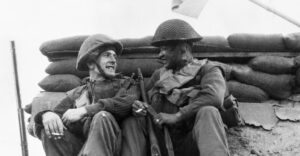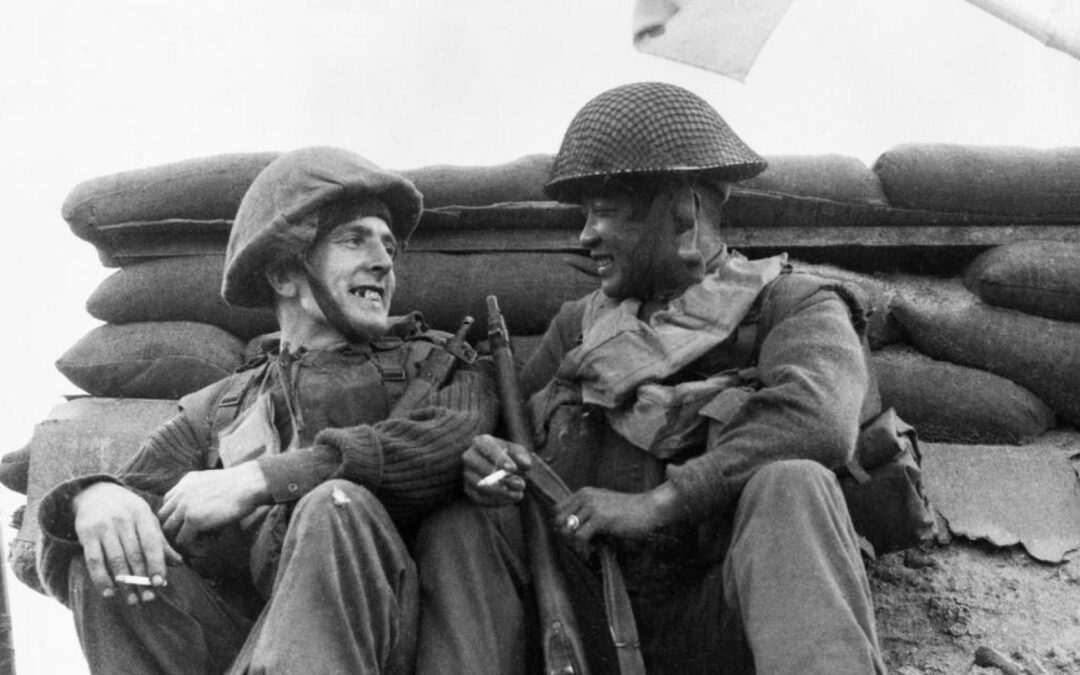#ForgottenFriday – The Korean War, 70 Years on!
The Korean War started on 25 June 1950 and ended on 27 July 1953, after the signing of an armistice agreeing that the country would remain divided.
World War II divided Korea into a Communist, northern half and an American-occupied southern half, divided by the 38th parallel. The Korean War (1950-1953) began when the North Korean Communist army crossed the 38th Parallel and invaded non-Communist South Korea. As Kim Il-Sung’s North Korean army, armed with Soviet tanks, quickly overran South Korea, the United States came to South Korea’s aid.
General Douglas MacArthur, had been overseeing the post-WWII occupation of Japan, commanded that the US forces had to hold off the North Koreans at Pusan, at the southern tip of Korea. Although Korea was not strategically essential to the United States, the political environment at this stage of the Cold War was such that policymakers did not want to appear “soft on Communism.” Nominally, the US intervened as part of a “police action” run by a UN (United Nations) international peace- keeping force; in actuality, the UN was simply being manipulated.
With the US, UN, and South Korean (ROK) forces pinned against the sea at Pusan, MacArthur orchestrated a daring amphibious assault on Inchon, a port on the western coast of Korea. Having made this landing, MacArthur crushed the North Korean army in a pincer movement and recaptured Seoul, the capital of South Korea. Instead of being satisfied with his rapid reconquest of South Korea, MacArthur crossed the 38th Parallel and pursued the North Korean army all the way to the northernmost provinces of North Korea.

Imperial War Museum (C) IWM KOR 616
Afraid that the US was interested in taking North Korea as a base for operations against Manchuria, the People’s Republic of China sent an army across the Yalu River. The Chinese army attacked the US/UN/ROK forces. [1]
Although President Truman hoped to end the war quickly and pressed General MacArthur to be more reactive, the brilliant strategist went against presidential orders and continued spouting incendiary lines about his hopes to reunify Korea. After gaining the support of the Joint Chiefs of Staff (JCS), Truman relieved MacArthur of command. The move was extremely unpopular in America; MacArthur was perceived as a popular war hero.
Only after Eisenhower, who was a war hero and was unafraid of Republican criticism (since he himself was a Republican), became President, could the US make substantial concessions to the Communists. In 1953 a peace treaty was signed at Panmunjom that ended the Korean War, returning Korea to a divided status essentially the same as before the war. Neither the war nor its outcome did much to lessen the era’s Cold War tensions. Read more here – https://www.sparknotes.com/history/american/koreanwar/summary/
[1] https://www.sparknotes.com/history/american/koreanwar/summary/ Copyright © 2023 SparkNotes LLC


